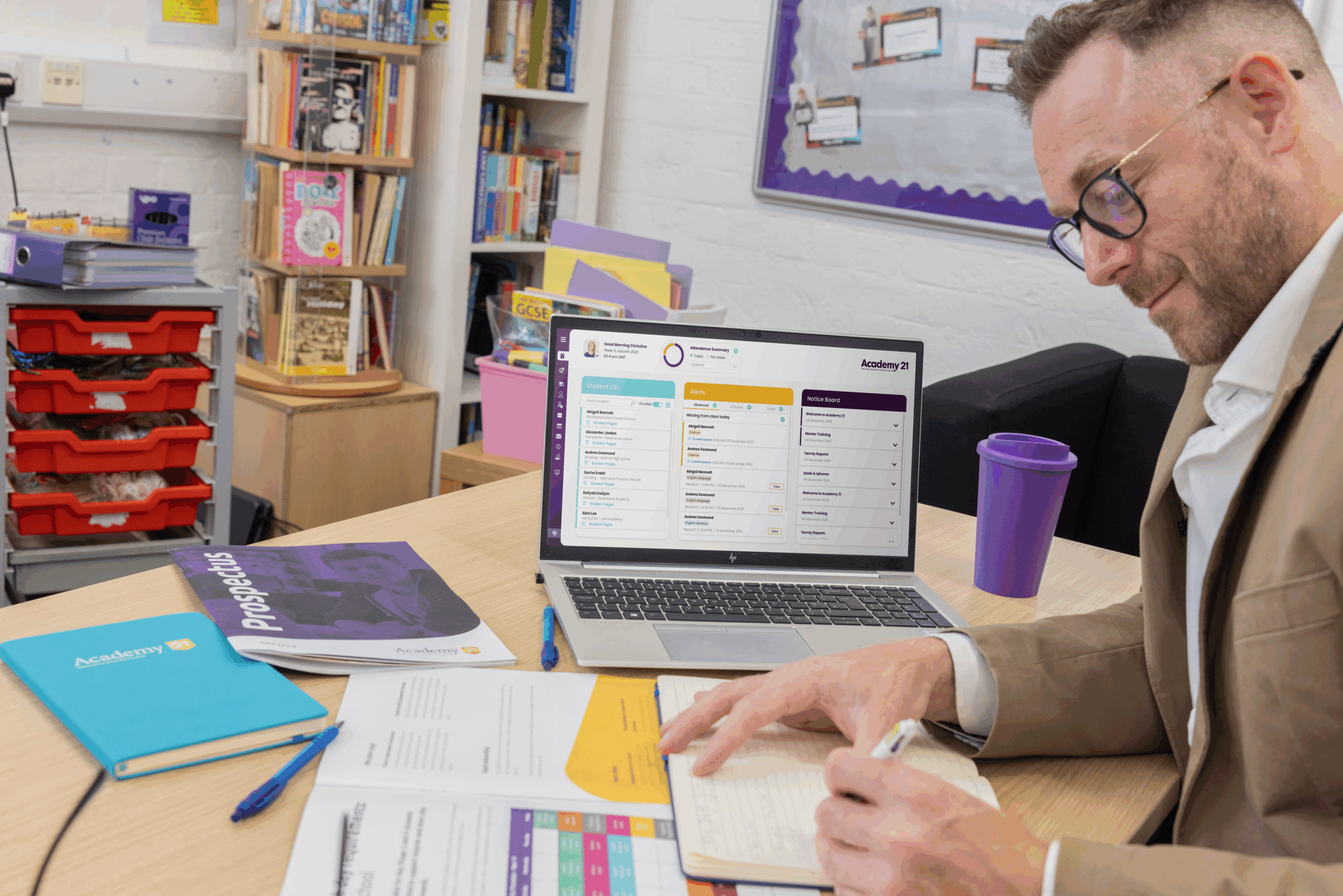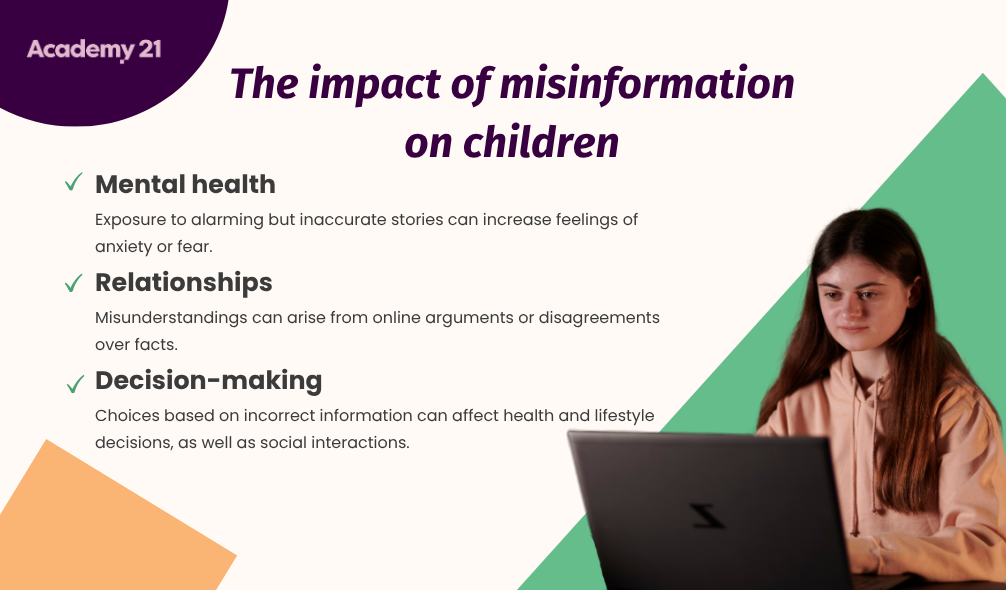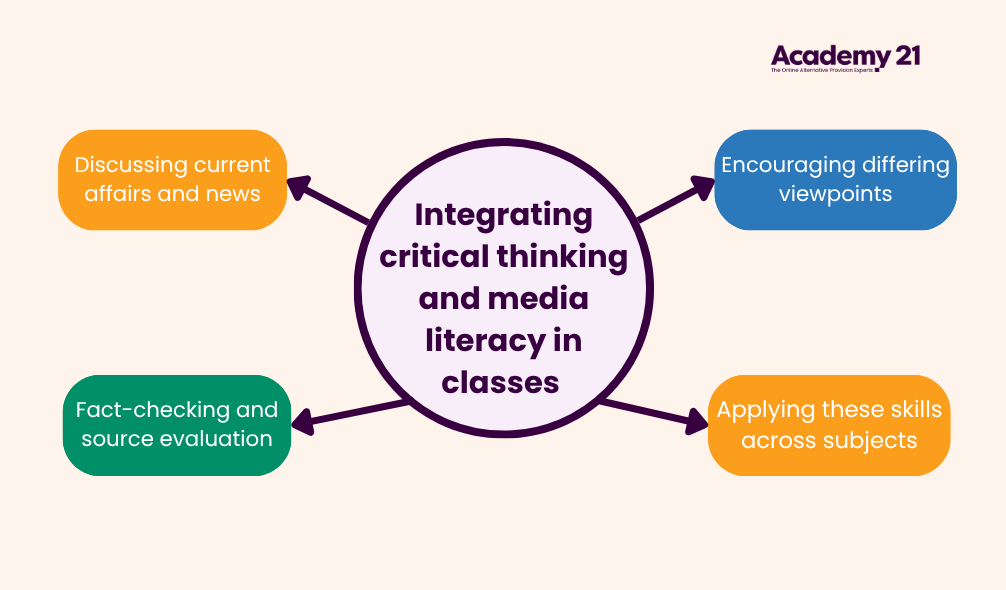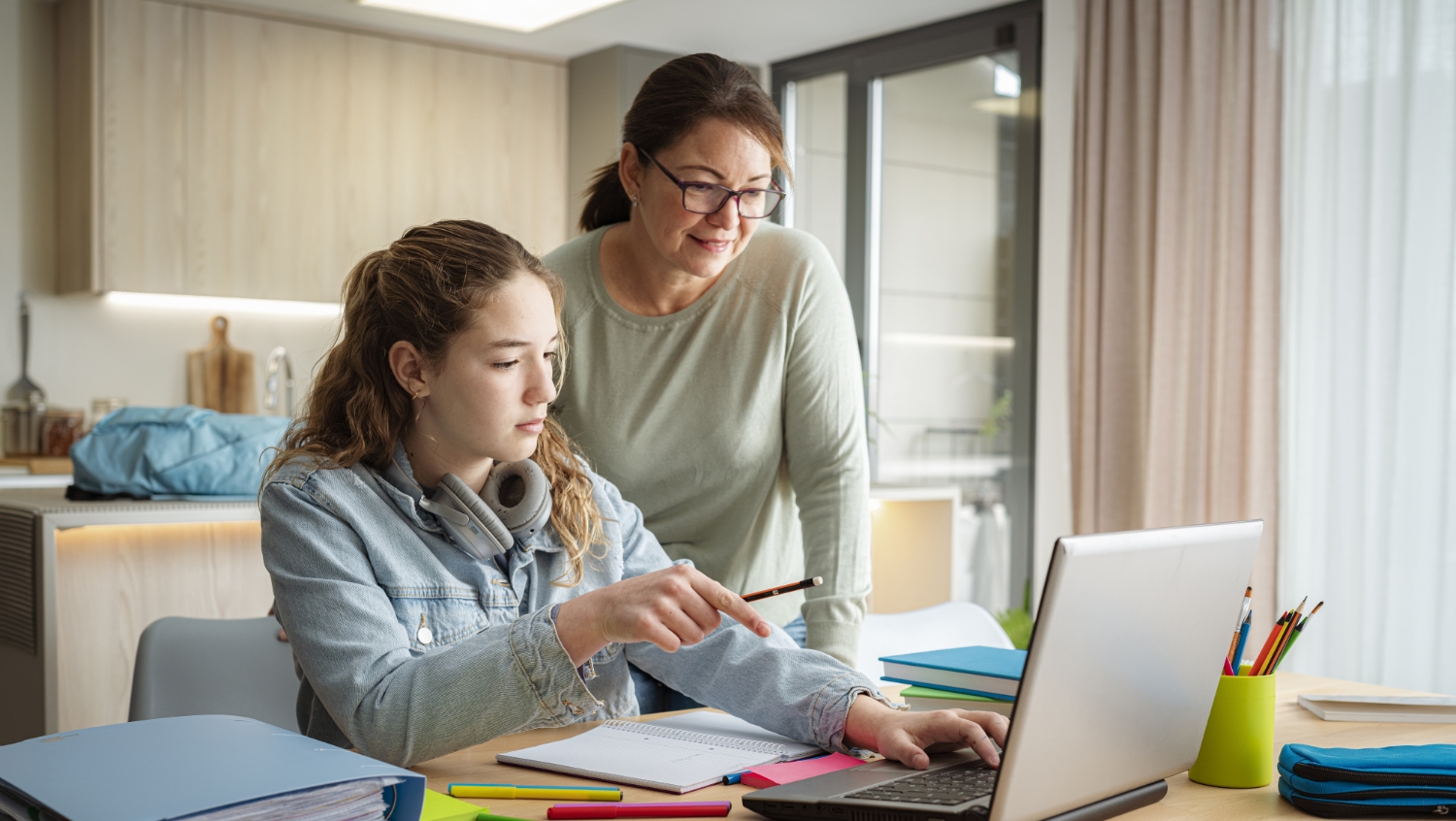2025 Safeguarding Update: Preparing students for the dangers of misinformation

The latest update to Keeping Children Safe in Education, which took effect in September this year, draws attention to a risk that schools have always faced in new ways: the impact of misinformation and disinformation on young people. The world is changing fast – pupils are exposed to a huge volume of information online, including via social media, and they need guidance to understand it safely.
Of course, educators can’t shield children from every uncomfortable topic. What we can do is introduce them to the skills to question, verify, and think critically, so they can engage confidently with the world around them. For schools, and for providers like Academy21, which supports students who can’t attend traditional school full-time, this update is a timely reminder that safeguarding now must include information literacy.
Why we must protect students from misinformation
By definition, misinformation is false or misleading information shared without harmful intent, while disinformation is content created deliberately to deceive. Both are everywhere. Social media, messaging apps, video platforms, and even some news outlets can present a version of events that isn’t entirely accurate.
For young people, the consequences aren’t just academic. Believing and sharing false information can affect:
- Mental health: Exposure to alarming but inaccurate stories can increase anxiety or fear.
- Relationships: Misunderstandings can arise from online arguments or disagreements over facts.
- Decision-making: Choices based on incorrect information can have serious consequences, from health and lifestyle decisions to social interactions.
The latest update to Keeping Children Safe in Education 2025 came into force on 1 September 2025. While many of the changes are technical (updating links, clarifying existing policies, and ensuring consistency) the update also introduces important new areas of focus that reflect evolving risks faced by young people today.
One of the most notable additions is the explicit recognition of misinformation, disinformation, and conspiracy theories as safeguarding risks. Previously, online safety guidance focused primarily on grooming, self-harm, and exposure to inappropriate content.

KCSIE 2025 expands this remit to include content that may mislead or manipulate pupils, recognising the significant impact false information can have on their wellbeing, behaviour, and understanding of the world. Schools are expected to integrate this focus into their safeguarding policies, staff training, and online safety practices.
The update also reinforces the importance of filtering and monitoring online content, including the consideration of generative AI tools, and aligns schools with current cyber-resilience standards. While the 2025 edition is described as “light-touch” compared to future updates, it signals a shift towards recognising the wider spectrum of digital risks young people face. Schools are encouraged not only to protect pupils from harmful content but also to equip them with the critical thinking skills and media literacy needed to navigate misinformation responsibly.
Embedding critical thinking into the curriculum
One of the clearest ways to address misinformation is through explicit teaching. Schools can integrate critical thinking and media literacy across subjects, and:
Discussing current affairs and global news: Encouraging students to explore what’s happening in the world helps them connect classroom learning to reality. Meanwhile, structured debates and discussions give students the chance to hear multiple perspectives.
Encouraging differing viewpoints: It’s not enough to present “the facts” from one source. Students should learn to listen to alternative opinions and evaluate them critically. Learning how to change one’s mind in response to new evidence is a vital life skill.
Fact-checking and source evaluation: Teaching pupils to ask: Who made this? Why? How do we know it’s true? Simple techniques like cross-referencing reputable sources or checking the credibility of websites can be practiced regularly in lessons.
Applying these skills across subjects: History lessons can examine bias in historical accounts, while science can explore evaluating claims and understanding evidence, and English lessons can examine persuasive writing, argumentation, and how language can mislead.

How Academy21 supports critical thinking and protects children from misinformation
At Academy21, we take safeguarding and the quality of teaching very seriously. As a provider fully accredited by the Department for Education under the Online Education Accreditation Scheme (OEAS), we meet rigorous standards for teaching, student welfare and safeguarding.
Our lessons are delivered live, by subject-specialist, UK-qualified teachers, working in small, interactive online classes designed specifically for students who may face barriers in mainstream settings. Because we tailor our timetables, scaffold our lessons and closely monitor engagement, we can respond swiftly when a student is struggling, either academically or personally.
Safeguarding at Academy21 means more than simply keeping students away from immediate risk. It means creating an environment where students feel safe, supported and able to learn. We believe that for young people today, being safe also means being equipped to think for themselves, especially in an online world brimming with information, some of which may be misleading or false.
That’s why our teachers go beyond delivering the curriculum. They invest time in building relationships and understanding each student’s background, strengths, and challenges.
Our assemblies, PSHE curriculum and wellbeing sessions cover key life topics that prepare young people for the world and help them develop an accurate, balanced view of it. From knife crime awareness and climate change to online resilience and fake news, we encourage open, informed discussions that build confidence and critical thinking.
For example, we explored how to identify and evaluate misleading information, emphasising the importance of questioning sources and applying critical thinking when engaging with media. Students are given time for questions and open discussion, creating space for reflection and shared learning.
More generally, our online classroom model gives us a unique advantage: we can monitor attendance, engagement, and interaction in real time. Our teachers are trained not only to teach their subjects but also to notice when a student may be disengaging or when their wellbeing could be at risk.
Thanks to all of this, our students tell us they feel more confident, more seen, and more capable of learning because of our tailored, student-centred approach.
Preparing young people for the real world
In an age where misinformation shapes much of what young people see and hear, safeguarding must evolve to meet new challenges. At Academy21, we see this as both a responsibility and an opportunity to teach not just safety, but discernment. Through compassionate teaching, meaningful discussion, and a focus on critical thinking, we help our students grow into informed, reflective learners who can engage with the world confidently and responsibly.



